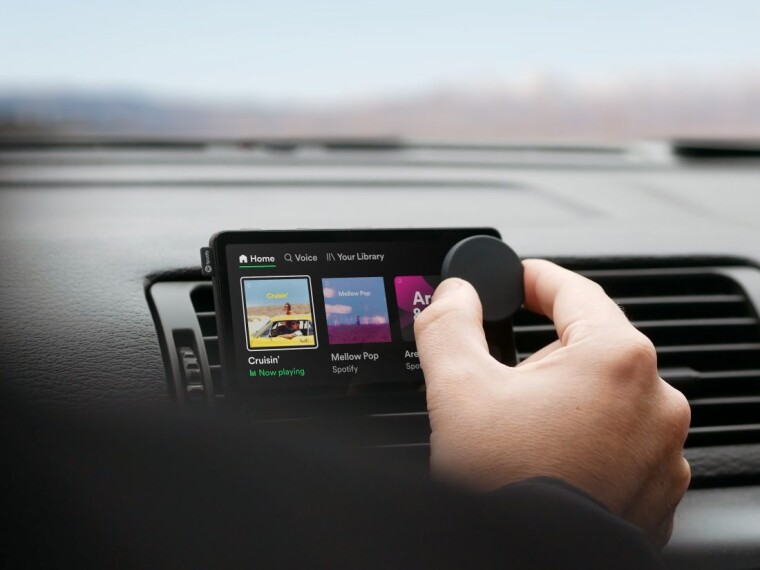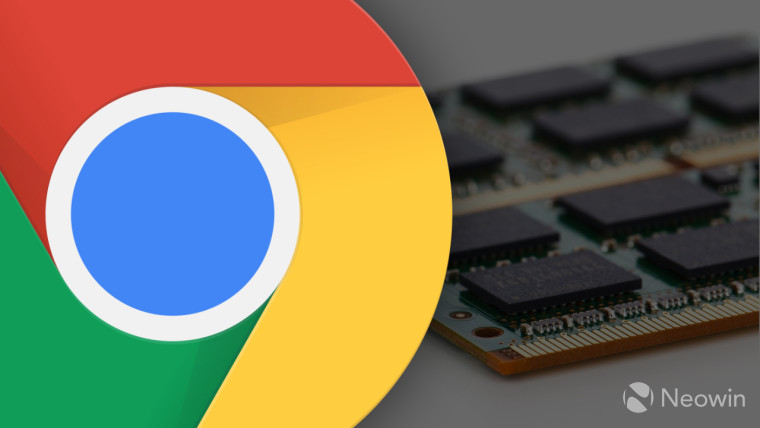
2024 is almost over. This year offered interesting gadgets, AI tools, and updates that got people talking—some for the right reasons, some, not so much. Here's a breakdown of the top 10 tech controversies of 2024, ranked from least controversial to the most.
10. Apple's power button placement on the new Mac mini
When Apple dropped the new Mac mini with the M4 and M4 Pro chips, people were pretty impressed by its compact design. But there was one thing that got everyone talking: the power button placement.

Apple decided to put it underneath the unit, and, well, that didn't sit well with everyone. Some Neowin readers were like, "Who cares? I hardly ever turn my computer off anyway," which kind of aligns with Apple’s thinking. But others weren’t so forgiving. They pointed out that not everyone has a rock-solid power supply, and if you're dealing with frequent power outages, reaching under the unit to press a button isn’t ideal.
9. Spotify Car Thing discontinued
Spotify launched the Car Thing in 2021, a hardware device designed to enhance the in-car music experience. It gained popularity, especially among users with older cars that lacked modern infotainment systems.

However, in May 2024, Spotify announced it would discontinue the product. Many users were understandably upset, as the Car Thing was still relatively new. They argued that had they known the device would be unsupported within a few years, they would not have made the purchase. While the Car Thing was expected to stop working by December 9, 2024, some users on Reddit have reported that their devices are still functioning.
8. Apple "Crush" ad missed the mark
Earlier this year, Apple refreshed its iPad Pro and promoted it with an ad titled "Crush." The ad depicted creative tools being destroyed by a hydraulic press, including items like paint cans, musical instruments, cameras, and more, with the iPad Pro emerging from the wreckage.

This was meant to symbolize how the iPad could replace multiple pieces of creative equipment. However, many users misunderstood the message. The situation escalated to the point where Apple did something rare: they apologized. Tor Myhren, Apple’s VP of marketing communications, expressed regret, acknowledging that the company missed the mark with the ad and emphasizing that it did not intend to undermine creatives.
7. Microsoft really wants you to use Bing, Edge, and Copilot
This year, Microsoft ramped up its ad strategy to convert Chrome users to Edge. The company has done this so frequently that it’s almost become a running joke. Earlier this year, users reported receiving pop-up ads promoting Bing while browsing Google Chrome. The pop-up read: "Chat with GPT-4 for free on Chrome! Get hundreds of daily chat turns with Bing AI." Users were given two options: "No, thanks" and "Yes." Clicking "Yes" would add the Bing Search extension to Chrome, making Bing the default search engine.

This isn't the first instance of Microsoft’s aggressive advertising tactics. In November, Edge was caught auto-starting on PCs with a pop-up promoting Copilot. The option to move data from other browsers was opt-out by default. Last year, Edge's social media manager thought it would be funny to tell an X user "No, it's not," after they pointed out that the "Never" option was missing in a popup shilling Edge.
6. AI Overviews: Adding glue to Pizza makes the cheese stick better
Google launched its Gemini-powered AI Overviews earlier this year. This feature uses large language models (LLMs) to process information from the web and present summaries to users. However, shortly after the launch, things took a turn for the worse. The AI began providing bizarre information and suggestions, such as advice on eating rocks. One particularly concerning recommendation suggested adding glue to pizza to prevent the cheese from sliding off.

In response, Google acknowledged the errors and stated that they were working on improving their system to limit user-generated or sarcastic content that could mislead users.
5. Windows 365 Link
At Ignite 2024, Microsoft introduced the Windows 365 Link. The device, priced at $349, resembles the new Mac mini in shape but lacks the power of its Apple counterpart. Microsoft describes it as "the first Cloud PC device for Windows 365." Essentially, for $349, you get a brick with some ports for peripherals, no local storage, and no ability to run apps locally.

Instead, it connects to a server somewhere. It even has a Kensington lock to discourage theft, though it's hard to imagine why anyone would want to steal it. While it's targeted at enterprises, some people feel it's too expensive given its limitations and functionality.
4. Google Chrome extension saga

Starting on June 3, Google Chrome began disabling older Chrome extensions powered by Manifest V2. The goal is to push users toward newer extensions running on Manifest V3. You might be wondering: what's the issue? After all, Google claims that Manifest V3 is more secure and private.
However, the problem users have with Google's decision stems from the removal of the webRequest API, which was widely used by extensions like uBlock Origin to block ads. In its place is the more limited declarativeNetRequest API. This change has sparked frustration, with many users vowing to switch to non-Chromium alternatives like Firefox.
3. $200 for a Tamagotchi-looking ChatGPT wrapper
The Rabbit R1 was introduced at CES 2024, boasting an easily recognizable bright orange design that resembled Tamagotchis. Unlike other AI hardware on this list, the R1 featured a touchscreen, but with a twist: you could only interact with it at certain times. At other moments, you had to use a scroll wheel. Early adopters quickly took apart the R1 to figure out how it worked, and through their efforts, we learned that the device is essentially an Android app. One user even managed to hack it and run alternative operating systems, such as LineageOS. As for features, the R1 offered things like voice assistance for tasks like weather updates (groundbreaking, right?), music playback, and more.
oops pic.twitter.com/cloSY35fmg
— Marcel (@MarcelD505) May 9, 2024
2. The $700 "assistant" that can't even set an alarm
The Rabbit R1 wasn’t the only AI hardware that grabbed attention this year. A company called Humane, founded by former Apple executives, kicked things off with their Ai Pin, marking a major step in AI-dedicated hardware. The device runs on an OS called CosmOS and includes a projector that displays information on your hand. Users interact with the display through gestures like pinching their thumb and forefinger. At a steep price of $700 upfront and a $24 monthly subscription, the device was supposed to reduce our reliance on smartphones.

With such a high cost, you’d expect it to be worth it, right? Unfortunately, it wasn’t. The internet quickly erupted with complaints about the device’s performance. At launch, the Ai Pin couldn’t even set an alarm or timer, and it frequently overheated. Despite its promising concept, the device felt overly ambitious for its time. The launch turned into a disaster, and critics, including MKBHD, even called it the worst product he had ever reviewed. Barely a month after shipping, a report surfaced about Humane considering selling the company.
1. Microsoft, who asked for this?
Every Windows user knows that Microsoft loves finding new and creative ways to mess with their user base. If you're tired of Microsoft's antics and you don't like Apple, you might want to give Linux a try. Back in May, Microsoft announced Windows Recall—an opt-out feature absolutely nobody asked for. Described by some as an info stealer and keylogger, Recall works by capturing screenshots and snapshots of user activity, creating a searchable timeline of interactions for later reference.

It was announced for Copilot+ PCs, which, if you're wondering, are a new category of Windows laptops equipped with dedicated hardware like Neural Processing Units (NPUs) designed to handle demanding AI workloads. NPUs are used by apps like CapCut, DaVinci Resolve, and more for faster, more efficient AI-related features.
When the feature was announced, users quickly realized that Recall didn't hide passwords or sensitive info like online banking authentication details. After multiple delays—thanks to user outcry and exposed security flaws—Microsoft finally launched Recall for Windows Insiders in November.
Honorable mention: Bluesky users are upset that publicly available data is publicly available
This year, folks finally got fed up (again) with Elon Musk’s antics and decided it was time for yet another Twitter exodus. How many has it been now? Two? Three? Honestly, who’s keeping track? First, everyone ran to Mastodon. Then Threads showed up, and people flocked to Zuck’s playground—until they realized Threads wasn’t really into political content. Enter Bluesky, which finally got its moment in the spotlight this year.
But Bluesky’s crowd is hardcore anti-AI, especially when it comes to using public posts for training models. So, imagine the chaos when Daniel van Strien, a machine learning librarian at Hugging Face, compiled a dataset of a million Bluesky posts and put it up on Hugging Face for the world to use. The backlash from Bluesky users was wild. People were so outraged that Daniel ended up pulling the dataset and issuing a public apology.
Well, that’s a wrap on 2024’s most chaotic tech moments! It’s been a year of "what were they thinking? " products, bizarre ads, and companies shooting themselves in the foot. What tech fail made you shake your head the most? Or did we miss your pick for the biggest flop? Drop your thoughts in the comments.

















24 Comments - Add comment